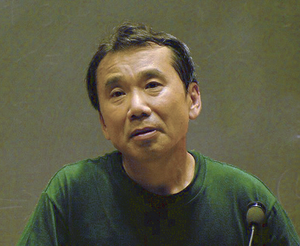
Japan’s Murakami favourite for Nobel prize
Japanese literary superstar Haruki Murakami is favourite for this year’s Nobel Prize in Literature, betting odds showed
Medical terminology named after Nazis
Surprisingly, there are a good half-dozen medical eponyms that come from Nazi doctors who performed experiments on unwilling human subjects or used bodies of executed prisoners in their work ? often in the course of discovering the very things that now bear their names. Clara cells, for instance, are a type of cell that lines small airways in your lungs. They’re named for Max Clara, who discovered them by dissecting executed political prisoners.
An interview on Agamben | An und für sich
1. What is the peculiarity of the link between philosophy and theology in the work of Agamben?
Colby: In many ways, I want to answer this question simply by saying that, according to Agamben?s reading of these disciplines, in the end, there is little difference between them, except to say that theology?historically speaking?got things wrong early on, and only now has an opportunity to embrace its ?mission? once again. When he speaks of Saint Paul?s understanding of ?the messianic? and its ability to upend any of our representations through a ?division of division itself? (in The Time that Remains), he is signaling the ?theological? core of our most basic philosophical endeavors. This is why I feel that Agamben?s most philosophical work will always have its theological counterpart, just as his writings on theology will always have major philosophical conclusions.
From ego-system to eco-system economies
Two words summarize the shortcomings of mainstream economics: externalities and consciousness. The solution to global crises begins between our ears.
Credit: Shutterstock. All rights reserved.
We live in an age of profound disruptions. Global crises in finance, food, fuel, water, resource scarcity and poverty challenge every aspect of our societies. These disruptions also open up the possibilities for personal and societal renewal. To seize these possibilities we need to stop and ask ourselves some basic questions: why do our actions collectively create results that so few people want? What keeps us locked into old ways of operating?And what can we do to transform the root problems that keep us trapped in the patterns of the past?
Discover more from Erkan's Field Diary
Subscribe to get the latest posts sent to your email.
